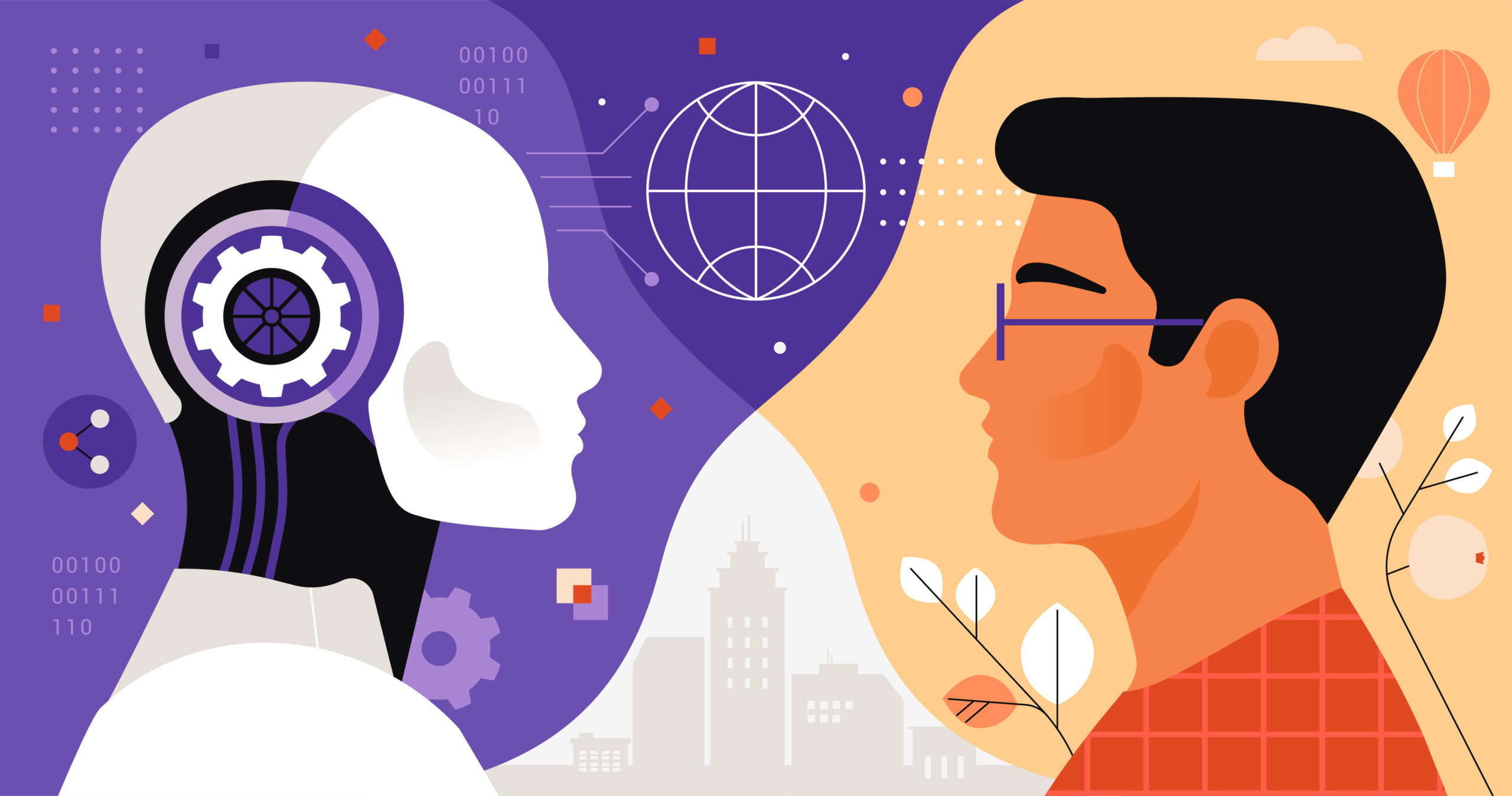The Robot at the Door: AI and its impact on your workforce

Steve Wooten is Think’s VP of Strategic Hiring. Having spent a long career straddling the growing gap between people and technology, he is currently working on a significant expansion of Think’s HCM division.
Books, movies and TV shows have been predicting the rise of the machines since before most of us were born. From the pure dystopia of The Matrix or Terminator movies, to the sickly horror of I, Robot and Ex Machina, there are plenty of reasons to question the future of our relationship with machines.
What’s not in question is that Johnny 5 is very much alive, and he’s about to be hired into a key role in your organization. It’s a role that everyone from Morpheus to John Conner would be begging us not to give him. We’re about to make AI central to the way that human beings are found, hired and managed. If we get it wrong, it’s pretty likely that this will be the moment in time to which travelers from the future will attempt to return.
Adding AI without reducing the value of real people
Overreliance on technology and AI to handle this area of working life alienates our people, destabilizes our teams and sets us up for trouble in the short term – whatever the long-term future holds. At the same time, we have to avail ourselves of all the efficiencies and cost savings that AI offers in order to compete in our market and stay up with our competition.
Everyone talks about people as the foundation of every successful organization. But deep down, we know that this is easy to say, but much harder to follow through on. A cynical view would be that we always talk about the importance of people, because people are the only actual audience for everything we say. You don’t need to thank Alexa. You don’t need to be polite to an automated chatbot. (Although the evidence suggests that most of us are.)
But while Siri will be there tomorrow, whether or not we appreciate her, our people may not be. And nothing is more set to cause trouble for our workforce than their perception of the encroaching threat of AI, and what protection we – their employers – intend to offer them. And it is protection that they are looking for. When you look around, you’ll see that our excitement about the possibilities offered by AI is dwarfed by our fear of the threat it poses.
Ethics in the time of AI
One significant reason for the fear of AI is the potential threat it poses to job security. 49% of workers believe their roles are under threat. As AI and automation technologies advance, there is a legitimate concern that certain job roles may become obsolete. People worry that machines and algorithms will replace human workers, leaving them unemployed and struggling to adapt to the changing job market. This fear is particularly prevalent in industries where AI has already made significant strides, such as manufacturing and customer service.
Lately, conversation has turned toward how AI will make decisions and whether they can be trusted to act ethically. Concerns range from biases encoded into AI algorithms, leading to unfair treatment or discrimination, to the potential for AI to be weaponized or controlled by malicious actors. The lack of transparency in AI decision-making processes further adds to the unease.
In summary: very few organizations currently have the internal bench strength to devote to working all of this out. A majority of companies are going into the second half of 2023 with no coherent plan for how they will handle Human Capital Management. The ground is shifting on a daily basis.
We can’t control the future. There is little point in any of us standing on the shoreline commanding the tide not to come in. It’s coming all the same. How we prepare now for the impact of these challenges will define our experiences over the next two to three years. This is a unique window for action.
We’ve expanded our Human Capital Management consulting services to address these issues now. These services are for everyone who doesn’t have a clear strategy for the next year.
Think advisors are catalysts for Human Capital Management and AI transformation. When you are navigating the introduction of AI and its impact on your people, Think is there to support you.